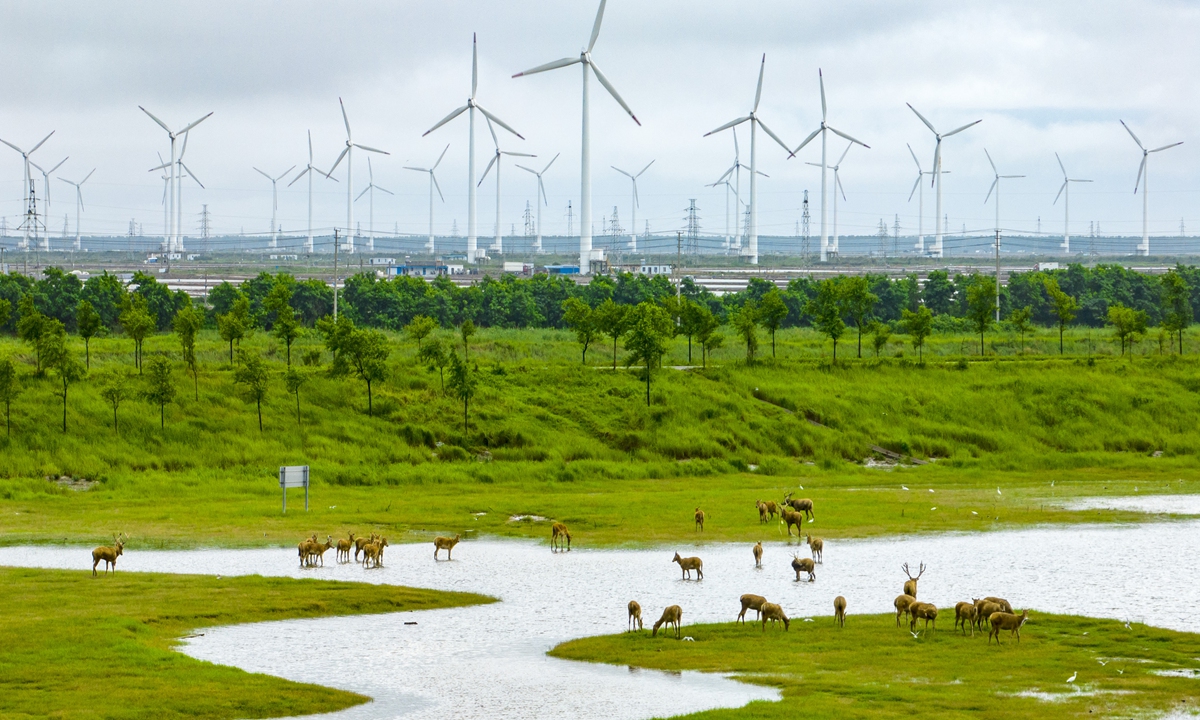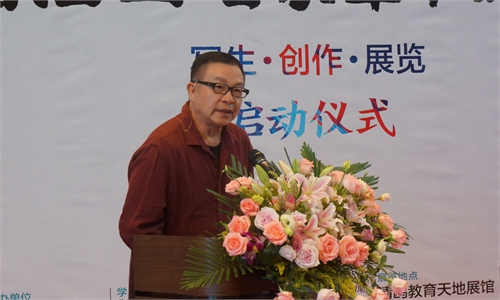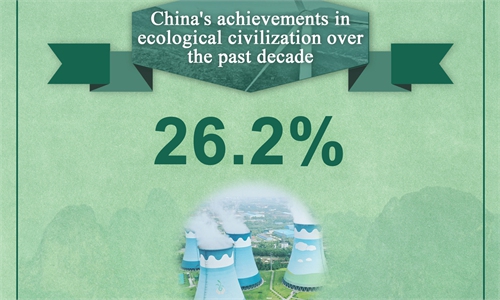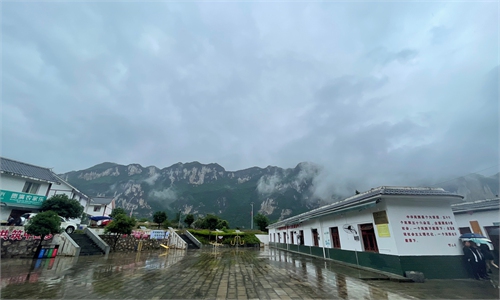Ecological values of ancient Eurasian cultures still alive, connect peoples of Silk Road

Photo: VCG
Promoting cultural development to build a modern Chinese civilization and enhancing environmental conservation to build an ecological civilization were highlighted by Chinese President Xi Jinping during his recent inspection tour in two Chinese provinces.
As ecological civilization is a concept not exclusive to China but something that can be shared with the whole world, it is worth analyzing it from a Hungarian perspective.
In 2007, building an ecological civilization became a goal for China and it is working systematically to achieve it. China's poverty reduction accounts for 75 percent of global poverty reduction. China has also achieved significant results in reducing air pollution and water pollution. Regarding carbon dioxide emissions, a 65-percent reduction is expected by 2030 compared to 2005. Moreover, the share of renewable energy is increasing (from 3 percent in 1978 to over 26 percent today). China has become a world leader in building high-speed, environmentally friendly railways (42,000 kilometers; China accounts for two thirds of the world's high-speed rail network), in introducing zero emissions buses (the majority of hydrogen buses are made in China) and in building the world's first hydrogen-powered train for urban transport. These are clear signs that within the last 15 years China has broken out of devastatingly unsustainable conditions and became the world leader in many respects.
All these trends have an even bigger future ahead if we take into account the commonalities in Hungarian and Chinese ancient traditions and values. What they have in common is a life-centered, but also community-centered and nature-centered approach and value system, thinking in terms of cosmic unity, and seeing the Universe as living.
Traces of the two slightly different branches of the ancient Eurasian nature religion, animism and shamanism, still prevail on the Silk Road. This is also important for building ecological civilization, since according to our nature religion, maintaining order and balance in nature is a priority. Nature religion fits naturally to nature philosophy and natural science. In ancient history, the primary route of the Silk Road connected the Carpathian Basin with China through the Steppes. It is this region where the most ancient culture of humankind is best preserved. It is no coincidence that the relation between Hungarian and Chinese folk music is also extremely close. The ecological values of ancient Eurasian cultures actively survive and connect the peoples of the Silk Road.
The burning problem of today's world is that the modern approach has emptied the concept of nature, created an immense intellectual abyss between nature and man and devalued it to the point of being utterly devoid of life, and becoming scientifically unappealing. This is compounded by the fact that, according to the modern image of man, there are no eternal human values. Our human nature has become obscured, and with it our human nature has become increasingly empty and degrading. This is why it is particularly important that Chinese culture is life-centered, valuing both the communal context of life and its embeddedness in nature.
The goal of ecological civilization, Pan Jiahua, director of the Institute of Eco-civilization Studies and Professor of Economics, Beijing University of Technology, wrote in his book, is to ensure the overall best harmony and well-being of man, civilization and nature, and the long-term sustainability of human society and the economy. Almost a century ago, a Hungarian biologist, Ervin Bauer, discovered the exact, universal fundamental law of life. This law derived all the basic equations of life, and explained all the fundamental phenomena of life.
The principle of life known in Chinese culture as chi (qi), through Bauer's theoretical biology and comprehensive science, has been given a scientific foundation. This achievement makes it possible to introduce a comprehensive life-centered education as well as bringing to the fore the ancient traditions of the peoples of the Silk Road. The common ancient history of the peoples of the Silk Road, and the common cultural elements, which accumulated over the immense duration of prehistory, can become the greatest intellectual resource of the 21st century.
The author is Research President of the Budapest Centre for Long-term Sustainability. opinion@globaltimes.com.cn



